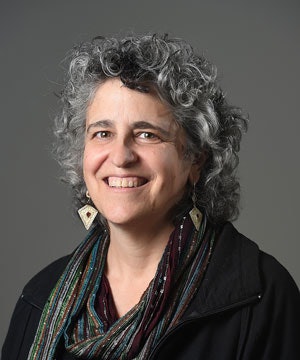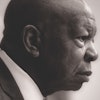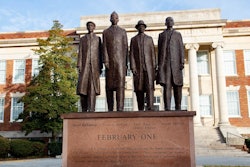The protests over Civil Rights and the Vietnam War that swept campuses in the 1960s are regarded as a high point in the history of youth activism, with extensive interest in the student demonstrations at institutions like Columbia University and the University of California, Berkeley. Less attention has been paid, however, to the 200 protests spearheaded by Black and other minoritized students over issues that directly affected their schools, which were some of the most impactful.
Now, one of the most consequential uprisings of that era is getting the documentary treatment in The Five Demands, a new film from co-directors Andrea Weiss and Greta Schiller currently screening around the country.
 Andrea Weiss, CCNY professor of film and video and co-director of The Five Demands
Andrea Weiss, CCNY professor of film and video and co-director of The Five Demands
On April 22nd, 1969, they padlocked the gates to the South Campus, taking over 17 buildings for an occupation that stretched past two weeks—the largest of its kind. Their demands included that the racial composition of all entering classes reflect the Black and Puerto Rican population of New York City high schools (57%), the creation of a school of Black and Puerto Rican studies, and a separate orientation program for Black and Puerto Rican students.
The takeover stayed non-violent, with the exception of a brief spasm of fighting and arson that the protesters say that they did not start as the demonstration was being broken up. The students taught each other classes in politics and English as a second language and were visited by prominent figures like Stokely Carmichael, a leader of the Black Panther Party. They also received strong support from the community that had so often been excluded from the college, with locals bringing the protesters food and blankets.
Although the occupation was ultimately shut down after the installation of a new college president, the students achieved much of what they were fighting for. The next year, CCNY adopted an open admissions policy that promised a spot to every high school graduate who wanted one, resulting in a much more diverse campus. And the college began Black and Latinx Studies programs. But despite this impact, the protest hasn’t received much attention.
It was even unknown to co-directors Weiss, a CCNY professor of film and video, and Schiller, a two-time CCNY alum. Weiss and Schiller learned about the uprising roughly a decade ago, from a CCNY professor who had almost been fired for supporting the protesters.
“Neither of us had ever heard the story before, and we couldn’t believe it,” said Weiss. “Nobody I knew at City College had heard it.”
Although the story was surprising, its obscurity was not necessarily a surprise.
“Black history is always less recognized,” said Weiss. “CCNY was not proud of this story. They kind of swept it under the rug.”
Schiller and Weiss knew that they had found their next project.
“We decided we had to tell that story while people were still around to talk about it,” said Weiss.
 Greta Schiller, co-director of The Five Demands
Greta Schiller, co-director of The Five Demands
Ultimately, however, the film’s timing couldn’t be better, with the release occurring just as the U.S. Supreme Court ended race-conscious admissions practices at colleges and universities, stoking debates about diversity. The Five Demands takes care to show not just that representation at CCNY was lopsided, but why, and the arguments that the film depicts over who should have access to the school will resonate with anyone who has followed the fights over “academic merit” in admissions to colleges and high schools. The film also raises implicit questions about the differences between the past and the present—and what would need to happen to galvanize a similar movement today.
Weiss hopes that The Five Demands can help to inspire contemporary activism.
“I think the story shows that people can effect change. It was just a small group of students who were 19, 20 years old,” she said. “Everything has to be fought for, and that ground that’s gained has to be protected. We can’t take whatever historic gains we’ve made for granted because things can be reversed.”
The Five Demands will be part of the Morehouse Human Rights Film Festival in Atlanta, from September 19th-23rd, and will be screened at the CUNY Graduate Center’s Public Programs Series in New York on October 18th and at the Maysles Documentary Center in New York on November 2nd. Additional showings around the country are being added. The film will be available for streaming and on home video early next year.
Jon Edelman can be reached at [email protected]





















